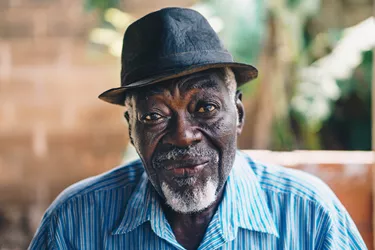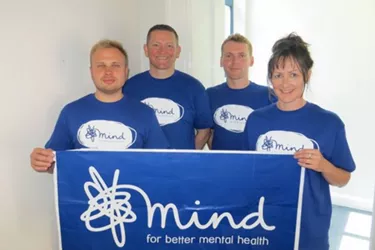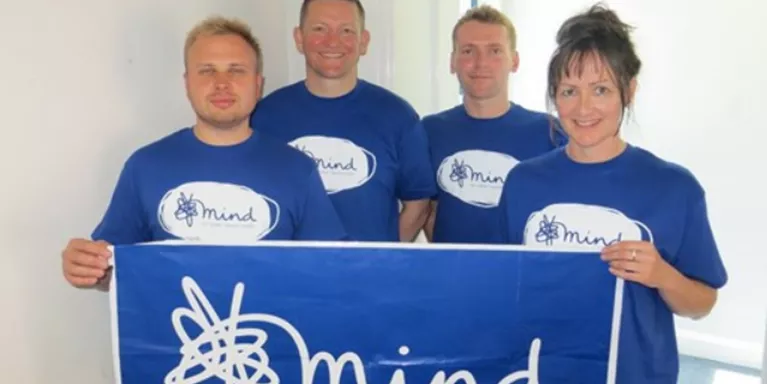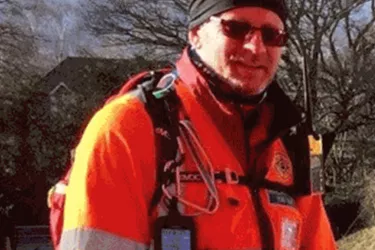Why mental health support is so important for Welsh police
Rhiannon works for the Welsh police. She shares how her job affected her mental health & why support is vital.
Rhiannon works for the Welsh police. She shares her experience of mental health problems, how her job affected them and why support is vital in the emergency services.
I’ve worked for the Gwent police service since 2008. I have experienced postnatal depression following from the birth of my daughter. My current diagnosis is chronic anxiety and I am awaiting the result of a mental health assessment, the suggested diagnosis from the counsellor is PTSD and/or OCD.
"I have worked and hidden my feelings throughout, until recently when I had no choice."
My role caused the problems to worsen and specific behaviours arose as a result of work and experiences there. Over exposure to situations by the general nature of the job led me to a stage where I was no longer able to function and consequently had to have a long term absence from work. I am currently back in work on restricted duties away from my usual role to allow me an unknown period of recuperation.
Since 2013, I finally was honest about the full extent of what I was experiencing which I truly feel has been the key to my recovery. I have worked extremely hard at managing the physical manifestation of the problems and accepting what is happening, accepting that this is not something that will go away any time soon if ever.
"I have worked hard at managing my feelings and trying to process them without them taking over me and sending me into total shutdown."
I continue to take medication which I was loath to do but understand that this gives me a platform to work from. Acceptance on my own part has been key. There have been numerous setbacks along the way and I am extremely lucky to have had support from family and friends. Having some strength of mind to push forward to effectively save yourself is very useful.
I would encourage anyone experiencing difficulties to access support, there is such a lot of support out there. I fully understand from my own experience that the onus is very much on yourself to push forward and get better and that it is hard to access things when you feel that doors are closed to you and that nobody wants to help.
My only way of coping was to deal with the initial emotional response of setbacks and being overwhelmed and then making a plan when you are in the right frame of mind and attacking it. The other response to this was to feel that it was all too much and bury your head in the sand and never get any help at all. I would say, take everything that is offered and be honest, there is nothing that these services haven’t heard before.
"You are never alone and the very best thing to do is to let it all out and ‘normalise it’, you will be surprised how many other people out there have experienced exactly what you have."
It is so important within the emergency services to talk about mental health however I can completely understand why people don’t. In this line of work we are exposed to things which are so unnatural and we normalise that too, as if this is something that doesn’t bother us, for fear of sticking out or exposing a weakness.
There seems to still be such a stigma ingrained as regards to mental health in my opinion and the fear of being labelled is overwhelming. We work with mental health a great deal in this line of work and there is a real fear of going over the line of doing the job and becoming one of the people we deal with.
"We have to deal with and see things that nobody ever should, often on a repeated and sometimes quite intense basis."
These things cannot be bottled and I think mental health needs to be addressed in it’s primacy before it takes hold. Giving staff tools to deal with this and know where to go if and when it does arise is key.
The Blue Light Programme is very important, I think that knowing that your employer is on board with organisations that can offer support to us is great. It is reassuring to know that as an employee I may be supported as opposed to being damned for it and stigmatised.


Information and support
When you’re living with a mental health problem, or supporting someone who is, having access to the right information - about a condition, treatment options, or practical issues - is vital. Visit our information pages to find out more.
Share your story with others
Blogs and stories can show that people with mental health problems are cared about, understood and listened to. We can use it to challenge the status quo and change attitudes.

















